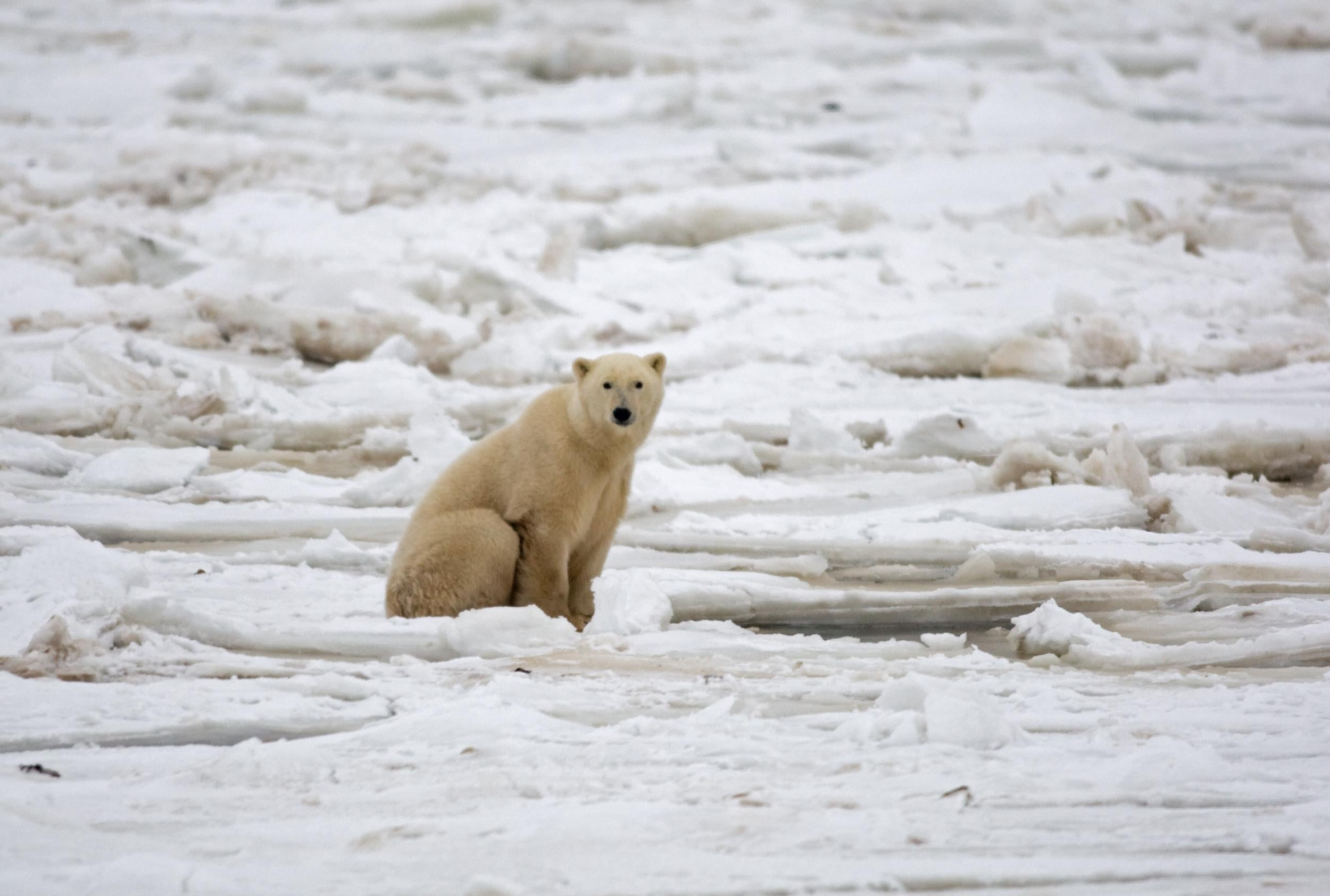Polar bear populations could plummet by 30% in next few decades due to climate change, report finds
Habitat destruction means there is a 'high probability' that global polar bear populations will drop by around 8,000 in the next few decades

Your support helps us to tell the story
From reproductive rights to climate change to Big Tech, The Independent is on the ground when the story is developing. Whether it's investigating the financials of Elon Musk's pro-Trump PAC or producing our latest documentary, 'The A Word', which shines a light on the American women fighting for reproductive rights, we know how important it is to parse out the facts from the messaging.
At such a critical moment in US history, we need reporters on the ground. Your donation allows us to keep sending journalists to speak to both sides of the story.
The Independent is trusted by Americans across the entire political spectrum. And unlike many other quality news outlets, we choose not to lock Americans out of our reporting and analysis with paywalls. We believe quality journalism should be available to everyone, paid for by those who can afford it.
Your support makes all the difference.The planet's 26,000 remaining polar bears could see their population decline by 30 per cent in the coming decades due to global warming and the continued melting of arctic sea ice.
According to a report by the International Union for the Conservation of Nature (IUCN), one of the world's most influential conservationist groups, global warming is now the single biggest threat to the long-term surival of the polar bear as a species.
Polar bears live, breed and hunt on sea ice, but it's disappearing even faster than predicted.
The IUCN says Arctic sea ice has been retreating at a rate of 14 per cent per decade, from 1979 to 2011.
The longer the ice disappears for in the summer months, the longer the bears have to go without food. These extended fasts can cause reproductive problems and even starvation in some places.
According to projections, some parts of the Arctic could be ice-free for up to five months of the year by the middle of the century.
As a result of this constantly retreating ice, the IUCN says there is a "high probability" that the global polar bear population will decline by more than 30 per cent over the next 35 to 40 years, with global bear numbers dropping by almost 8,000.
Not only is retreating sea ice a problem in itself, but the decline of the polar bear, as an apex predator, could have major knock-on effects on the whole arctic ecosystem.
Fortunately for the polar bears, there are plans to help them. The Circumpolar Action Plan is a conservation strategy for the species that has been agreed to by the five states in which polar bears live - Norway, Canada, Greenland, Russia and the US.
The plan, drawn up in September this year, seeks to communicate the importance of polar bears to the public and legislators, to ensure a better approach to hunting, and to take action against the other threats facing the species, such as oil spills and increased encroachment on polar bear habitats by humans.
In the words of Dag Vongraven, the chair of the IUCN's polar bear specialist group: "While sea ice loss is the major threat to polar bears, the full range of current and potential threats must be considered in polar bear management plans."
The IUCN will work with the signatories to the Action Plan, providing expertise and data in an effort to save the species.
Join our commenting forum
Join thought-provoking conversations, follow other Independent readers and see their replies
Comments